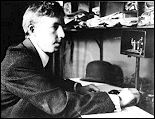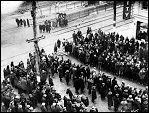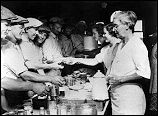Inequity is an inevitable component of any organized society. A key element of the evolving “American dream” has been to minimize “inequity” and maximize “opportunity”. The democratic process provides a peaceful means for oppressed groups or individuals to voice complaints and seek redress.
Down through the years, efforts to eliminate or reduce inequity have met with mixed success. Typically, there have been requirements for organized groups to develop a “voice” that could be heard over the noise and clamor of business, industrial and governmental operations.
“The first two decades of the twentieth century witnessed an unprecedented level of industrial conflict in the United States. Employers’ efforts to introduce scientific management into the work-place were bitterly contested by skilled workers and their unions. Unskilled workers, swamped by wave upon wave of immigrants from southern and eastern Europe, struggled for security. Both kinds of workers built organizations to protect themselves...” [MIACOC]; thereby continuing the difficult and painful process of identifying and protecting their portion of the pie - the American dream. |
|
|
Protests and Reforms

Henry Knott, Minneapolis City Clerk, at telegraph
during the Midwest Telegraphers Strike, ca. 1900.
Minnesota Historical Society

South St. Paul packers strike, 1921
St. Paul Daily News & Minnesota Historical Society

Strikers soup kitchen,
1934 truck strike, Minneapolis
Minnesota Historical Society
|





